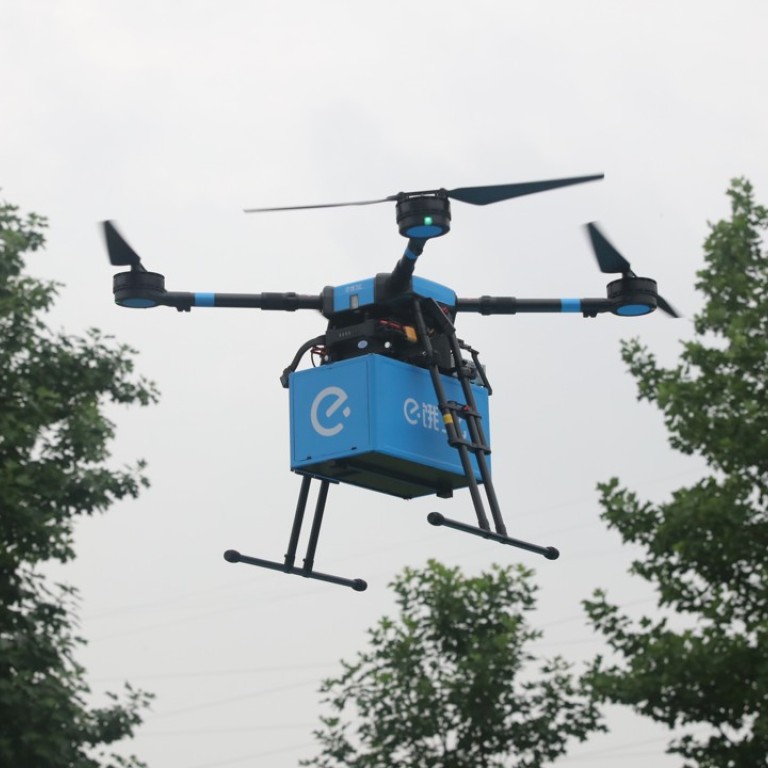
Your Chinese takeaway is ready to be delivered by drone
Ele.me, one of China’s leading online food delivery platforms, has been given the green light by authorities to operate in the country’s initial delivery routes for drones.
The 17 newly approved routes over an industrial zone in Shanghai will enable consumers there to receive online takeaway meal orders via drones within 20 minutes after confirming the delivery on their smartphones, according to Ele.me during an event in Shanghai on Tuesday.
Deliveries in the Shanghai Jinshan Industrial Park, which covers an area of about 58 square kilometres (22.4 square miles), are expected to benefit more than 100 food merchants doing business there, the company said.
Under the rules drawn up for this programme in Shanghai, drones will transport meals to and from two fixed locations within each route.
Delivery personnel at each starting point are responsible for gathering all takeaway orders and placing those inside the cargo hold of each drone. Personnel at the delivery points will distribute the meals carried by each drone directly to the specified addresses of customers.
There are no extra charges to consumers who use the new drone deliveries.
Ele.me said meal deliveries using drones will substantially lower its operating costs, compared with normal delivery on the road, as each delivery staff will only need to run 15 per cent of the routes. It estimated that the use of drones will help boost the income of delivery personnel as much as five times.
The opening of drone routes in Shanghai looks poised to heat up the competition between Ele.me, which is controlled by Alibaba Group Holding, and Meituan Waimai, the food delivery arm of Tencent Holdings-backed Meituan Dianping.
While Ele.me and Meituan Waimai have come to dominate the country’s only food delivery business, Chinese ride-hailing giant Didi Chuxing announced its entry into the market in early March by advertising for riders in several cities on the mainland.
With a range of consumer services that help make users’ lives convenient, Alibaba, Tencent and Didi collect plenty of customer data. Their food-delivery platforms would provide additional insights into consumer spending power, eating preferences and payment profiles.
Ele.me may have the inside track on drone deliveries because it already introduced a fleet of drones in September last year for trials in Shanghai.
The company’s E7 drone model used in those trials can carry up to six kilos of food and fly as far as 20 kilometres at a maximum speed of 65km per hour.
“The company aims to introduce its second-generation food delivery robots, which will cover more than 500 office buildings in major Chinese cities later this year,” said Ele.me chief operating officer Kang Jia in a statement on Tuesday.
Meituan Waimai, however, has also been working on robotic delivery for the past two years, according to Meituan Dianping chief executive Wang Xing during the China Development Forum in March.
Wang said the on-demand service provider has applied for more than 60 patents on drone and driverless car delivery, and plans to achieve mass application of unmanned delivery next year.
Meituan Dianping did not immediately respond to a request for comments on its unmanned delivery plans.
Alibaba, the parent company of the South China Morning Post, announced in April that it plans to acquire the shares of Ele.me that it still did not own. That means buying the outstanding shares held by other investors, including online search giant Baidu.


